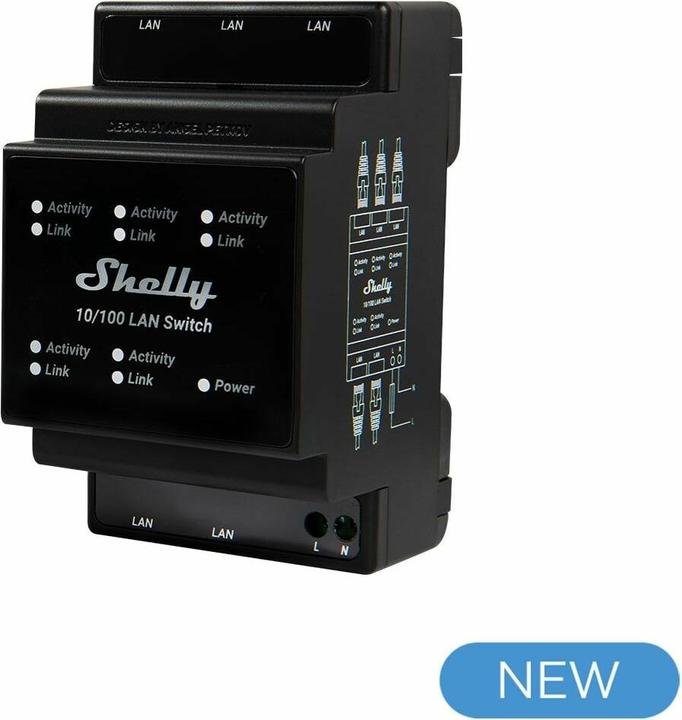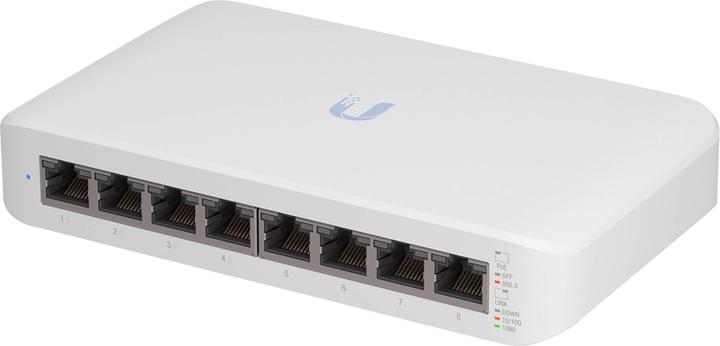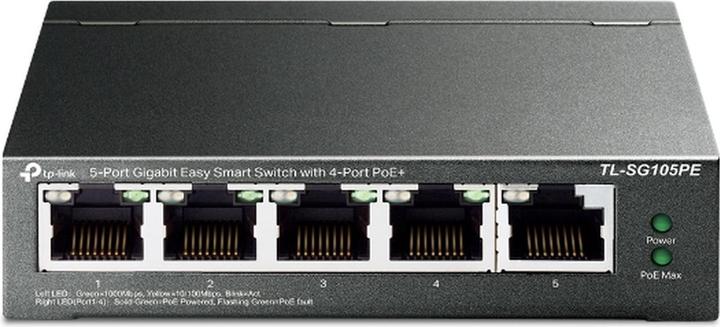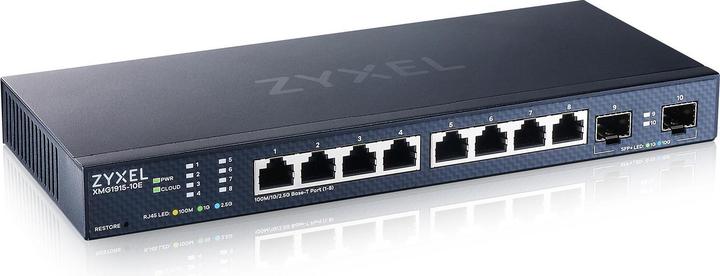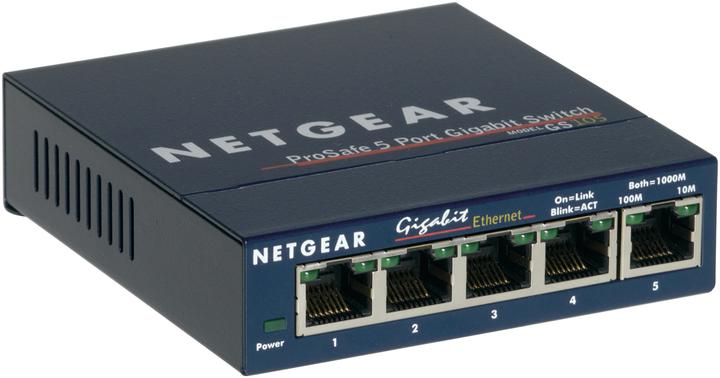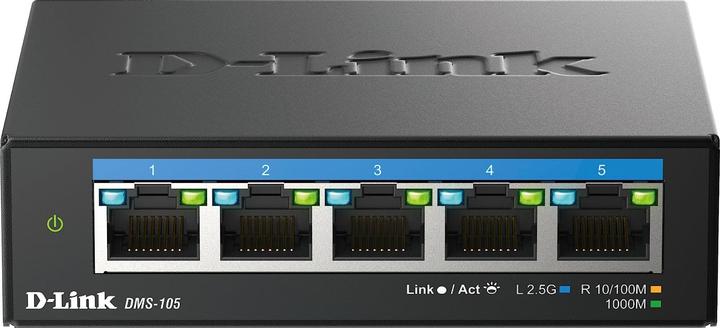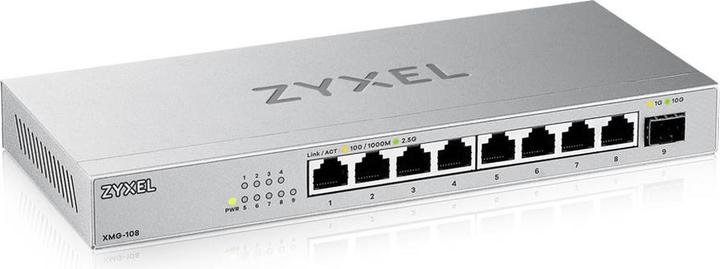
Too Many Network Switches? Find the Right One
Here are five essential factors to consider when choosing the perfect network switch for your needs.
Last updated 2 weeks ago. Automatically generated content.


Select options and limit the number of products
Switch type determines the physical design and mounting method of a network switch, impacting its suitability for different environments and installation spaces. Selecting the right switch type ensures efficient network setup and maintenance, meeting specific needs and constraints of the space.
Popular options (you can select more than one)
Rack Switch
Typical price
300.– to 3200.–Designed to be mounted in a standard 19-inch rack, offering scalability and central management.
Ideal for data centers and large network infrastructures where space optimization and organized cabling are essential.
Bestseller
PoE Switch
Typical price
130.– to 840.–Provides Power over Ethernet, allowing devices to receive power and data through a single cable.
Perfect for powering IP cameras, phones, and wireless access points, reducing the need for additional power sources and simplifying setup.
Bestseller
Desktop switch
Typical price
38.– to 190.–Compact and designed for placement on a desk or shelf, suitable for small networks.
Best for home or small office environments where minimal installation effort and easy access are desired.
Bestseller
DIN Rail Switch
Typical price
160.– to 800.–Mounts onto a DIN rail, commonly used in industrial settings for secure and efficient installation.
Recommended for factories and industrial applications where robust and reliable network connections are required.
Bestseller
Max. port speed refers to the highest data transfer rate that a network switch can support per port, impacting the speed and efficiency of data communication within a network. Selecting the appropriate port speed is crucial for ensuring optimal network performance and meeting the specific demands of network traffic, such as bandwidth-intensive applications.
Popular options
Up to 1000 Mbit/s
Typical price
100.– to 800.–Supports standard Ethernet speeds, suitable for most home and small office networks.
Ideal for general internet browsing, streaming, and small-scale file sharing without lag.
Bestseller
1001 - 10000 Mbit/s
Typical price
290.– to 3100.–Provides higher speeds for more demanding network requirements, including Gigabit Ethernet.
Recommended for medium to large businesses with high data transfer needs and extensive network traffic.
Bestseller
10001 - 20000 Mbit/s
Typical price
240.– to 1800.–Supports advanced speeds for maximum data throughput, suitable for high-performance applications.
Best for data centers and enterprises requiring robust network infrastructure to handle large volumes of data efficiently.
Bestseller
Management in network switches determines how you control and configure the device, impacting the flexibility and scalability of your network setup. Choosing the right type of management is crucial for ensuring optimal network performance and meeting specific administrative needs.
Popular options (you can select more than one)
Unmanaged
Typical price
85.– to 750.–Operates without any configuration, ideal for simple plug-and-play setups.
Best suited for small networks where ease of use and cost-effectiveness are priorities.
Bestseller
Fully managed
Typical price
460.– to 3900.–Offers comprehensive configuration options and advanced features for network control.
Ideal for large or complex networks requiring detailed monitoring and customization.
Bestseller
Smart managed
Typical price
190.– to 750.–Provides a balance between unmanaged and fully managed options, with limited configuration features.
Suitable for medium-sized networks needing some control while maintaining ease of use.
Bestseller
Cloud managed
Typical price
220.– to 1100.–Allows remote management via cloud services, enhancing flexibility and scalability.
Perfect for businesses looking to manage multiple sites or locations efficiently.
Bestseller
PoE Standard refers to the protocol used for delivering power over Ethernet cables, essential for powering network devices without separate power sources. Choosing the right PoE standard is crucial for ensuring compatibility and optimal performance of connected devices, such as IP cameras and wireless access points.
Popular options (you can select more than one)
802.3at (PoE+)
Typical price
160.– to 1200.–Provides up to 30 watts of power per port, allowing for the operation of high-power devices.
Ideal for powering devices like PTZ cameras and IP phones, offering enhanced functionality without additional power cables.
Bestseller
802.3af (PoE)
Typical price
120.– to 800.–Supplies up to 15.4 watts of power per port, suitable for standard devices.
Perfect for basic applications like powering VoIP phones and simple cameras, ensuring cost-effectiveness and efficiency.
Bestseller
802.3bt (PoE++)
Typical price
210.– to 2200.–Delivers up to 90 watts of power per port, supporting the most demanding devices.
Recommended for high-power applications such as video conferencing systems and lighting controls, providing robust power solutions.
Bestseller
UPOE
Typical price
85.– to 2600.–Extends PoE+ capabilities to deliver up to 60 watts per port, enabling a broader range of devices.
Excellent for versatile environments, supporting devices like biometric access systems and large displays, facilitating seamless integration.
Bestseller
The brand factor in network switches guides customers in selecting reliable options based on reputation and technology. Brands like Netgear, Ubiquiti, and TP-Link are recognized for their innovation, user-friendly interfaces, and comprehensive support, impacting network performance and user experience.
Popular brands (you can select more than one)
Netgear
Known for its high-performance switches suitable for both home and business use.
Offers seamless integration with existing networks, ensuring reliable connectivity and support.
Bestseller
Ubiquiti
Renowned for its advanced networking solutions with a focus on scalability.
Ideal for businesses seeking easily expandable and remotely manageable networks.
Bestseller
TP-Link
Recognized for affordable yet robust network solutions.
Provides excellent value for small to medium-sized networks with user-friendly interfaces.
Bestseller
D-Link
Offers a wide range of versatile network switches.
Great for budget-conscious consumers looking for reliable, easy-to-use options.
Bestseller
Zyxel
Specializes in secure and efficient networking products.
Perfect for users prioritizing network security and energy-efficient operations.
Bestseller

